So, what do marine biology students on the Cape RADD field course ACTUALLY do? We here you ask. Well, we have compiled this daily diary blog to give an example of what a two week field course might look like. The course is jam packed with workshops, presentations, and practical sessions involving shore based and boat based diving and survey participation. Here is a little taster as to some of the projects, activities and adventures you will be involved in as a Cape RADD student.
Day 1:
The first day of the field course is when we really get to welcome our students. Many have traveled from far and wide and need the days before the course starts to catch up on some rest and get over the jet lag. We ease in to things with welcome talks, introduce the course and what we will offer and what YOU as a student will get out of the course. Students meet the Cape RADD team and are given a orientation tour around the Cape peninsula to get a feel for the area familiarize yourself with your location for the next couple of weeks.
Then, in true South Africa style, it’s back to the accommodation and we throw a WELCOME BRAAI! (an African BBQ) so we can get to know everyone better and relax a little.
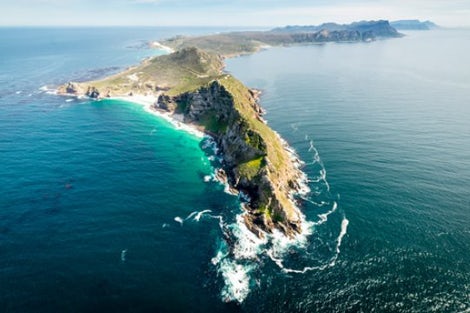
Day 2:
Time to get in the water! Today we start with SCUBA refresher dives and equipment set up so students can brush off those cobwebs and get comfortable again in the water. We practice some surface rescue techniques, emergency buddy breathing, regulator recovery, mask and weight belt removal, buoyancy and anything else students want to practice. It’s important that all our students feel happy and confident in their scuba ability before they begin any surveys. This is a really great way to build up confidence for those who arrive not having dived for a while. We do this in a lovely protected beach entrance dive site, so its a nice fun ease back into diving.

Day 3:
Today we head out on the dive boats and get familiar with boat procedures, safety protocols at sea and enjoy diving at a few of the beautiful dive sites along the cape peninsula. Students spend a day at sea diving with the cape fur seals and experiencing the kelp forests of the cape for the first time. This give students a good feel for how the research days will go and what some of the dive sites look like before we get into the surveying dives.

Day 4:
Today we start our introduction to scientific diving workshop. We spend the morning in the classroom discussing the various sampling techniques we will be using over the coming weeks on dives, their pros and cons, when they should be used and run through sampling protocols. Then, in the afternoon we kit up and get in at our sheltered beach training site to practice and familiarize students with the practicalities of diving with the equipment and applying a few sampling techniques under the watchful eye of a Cape RADD instructor. This is a very important day as it sets the quality assurance for the data collection during the survey dives, making sure students understand how to record data, how to properly use the equipment and start to understand how to achieve the dive objectives tasked. This gives great hands on experience and depth of knowledge behind the diving.
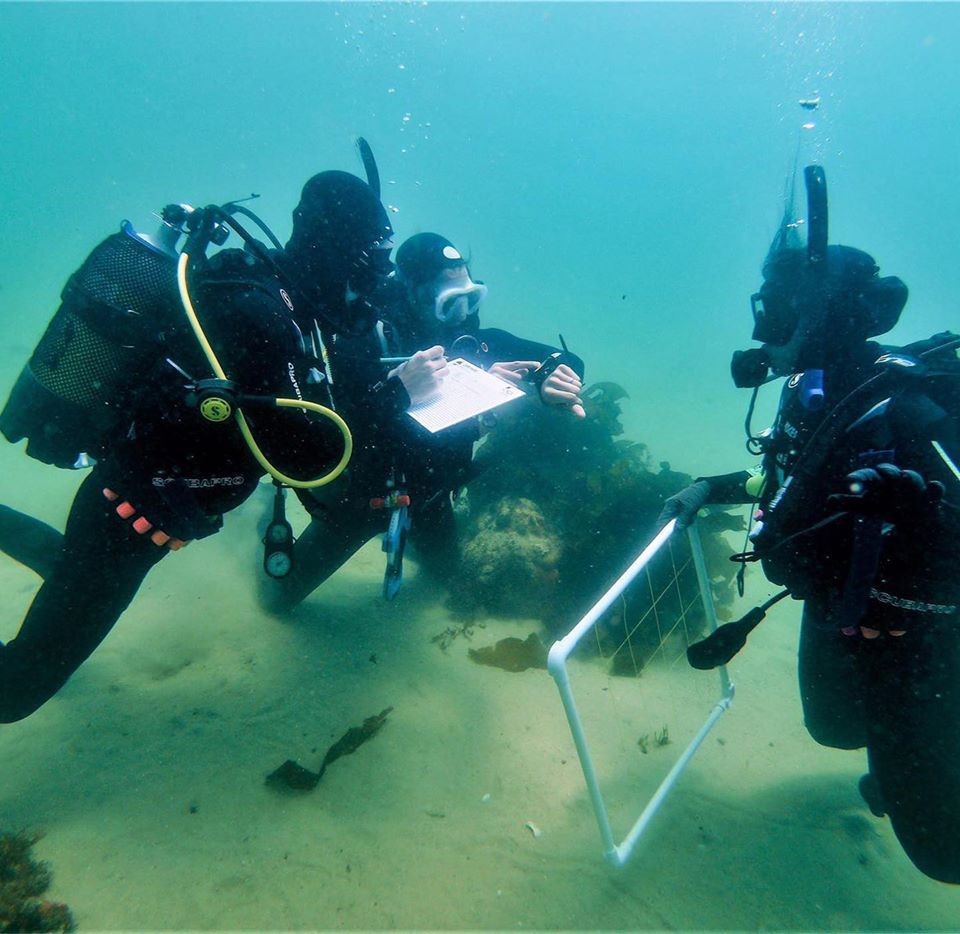
Day 5:
By now students have had some practice and completed the workshops and they are ready to take part in their first field survey expedition. After a thorough project and dive briefing in the classroom, covering project and safety protocols, equipment, key questions and a species identification reminder, everyone knows their task and dive objectives.
Then we head out and run a nudibranch belt transect survey. Here, students are looking to record species, substrate, environmental data and take a photo for ID for confirmation. This is great hands on experience to understand when a continuous belt transect is best used and how to implement this skill. It’s also most students first experience at diving with scientific objectives carrying and using data slates and other equipment. So it gets students thinking on a number of levels and problem solving as they go, of course under the ever watchful eye of Cape RADD instructors.

Day 6 & 7: It’s the weekend!
After a week of focused learning, new diving techniques and conditions, being introduced to some of the research projects and completing their first scientific survey, students have chance to relax and explore some of the amazing sites and activities in and around The beautiful city of Cape Town. Adventurous hikes up through the gorges of table mountain national park, botanical gardens, boulders beach and Cape point National park are just a few spots out students love to go. There’s also the shops and restaurants of the V&A waterfront. Cape Town has it all. For more activities in Cape Town click here

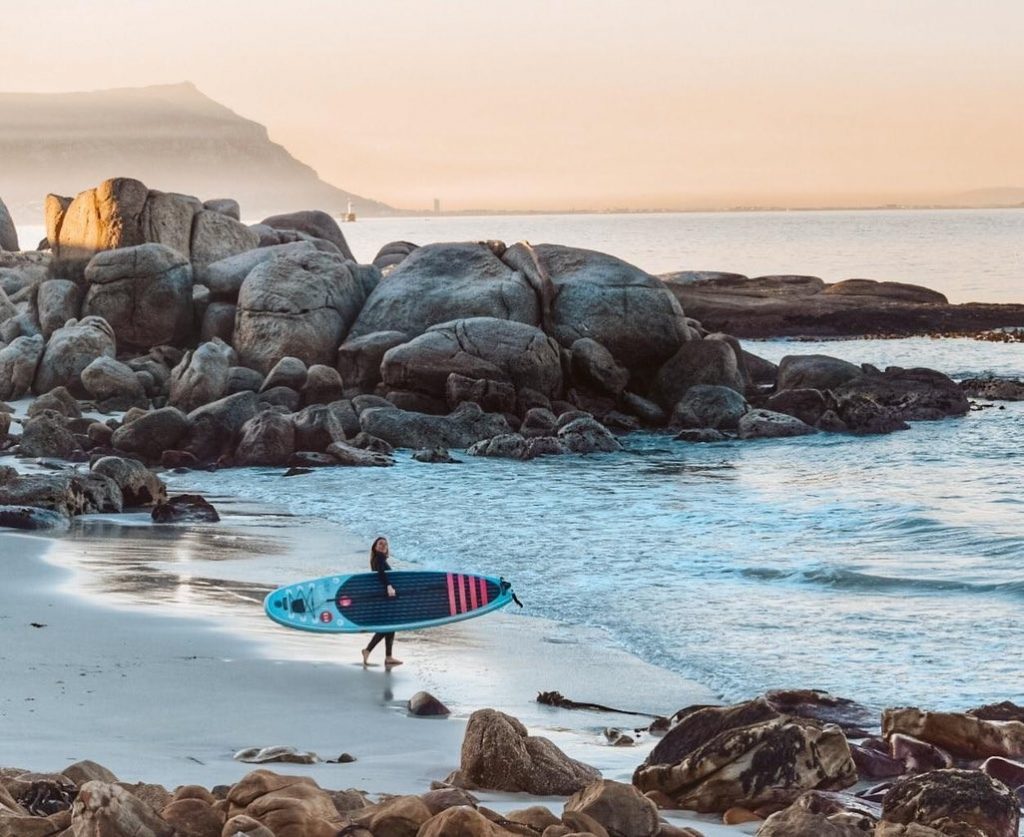
Day 8:
Let’s get back to it! Free diving workshop theory and practical sessions. Free diving is an incredibly valuable skill to have as a field biologist. The ability to access the ocean with only your breath as a physical restraint is a liberating feeling. To observe with minimal disturbance and to be able to bounce up and down from the surface to communicate or record positional data. In the workshop we discuss the safety & physiology behind breath hold, the benefits and limitations and it’s application as a skill as a marine biologist, along with some techniques for improving and developing your physiological and mental abilities. Stretches, mental relaxation skills and apnea table training is all covered. We then head down to a suitable spot to apply what we have learnt in the workshop to the real thing. Starting shallow and under the close watch of your dive buddy and a Cape RADD instructors we start to practice the techniques. Everybody works at their own pace, the only competitor in free diving is your own mental state. We often see student confidence quickly grow and after only one session we see breath hold improvements of 30-60 seconds once the techniques are taught and practiced. A really fun day and often a great introductory window for students to pursue this fantastic sport further.

Day 9:
After a project briefing and dive objectives morning meeting, we kit up and load the dive vessel. Here, students are doing a 0.5×0.5m random quadrat macro invertebrate sampling survey. We are running a long term baseline data set investigating the abundance of echinoderms and the substrates on which they live. Comparing inside and outside the cape peninsula marine protected areas MPA, and seasonality.
Students get to apply what they learnt in their first week of training for real. They must learn to think on their feet and react to the situation, of course under the watchful eye of Cape RADD instruction and supervision. These skills and experience really gives students a flavor of how real sampling in the field works as a marine biologist, the ups and down and the challenges which come with it. It’s also a load of bloody good fun!

Day 10:
Today we are heading out on an endemic fish count, looking at species abundance and diversity. After our morning dive briefing where students are given the project background, dive objectives and protocols, we load up the boat with our equipment and head to our sampling site in False Bay. There are a number of sampling protocols used and taught to our students to do fish counts. We teach them the pros and cons of techniques such as stationary point counts (SPC), belt transect, and roving diver. All are great ways of counting fish depending on the project objectives. Armed with a species list slate and previously taught fish ID knowledge, we enjoy a day of beautiful diving and observation of the amazing biodiversity along the Cape Peninsula.


Day 11:
Today, students are introduced to the influence of grazer abundance in kelp density project. Students are record kelp recruitment and algae cover using a belt transect and open 1x1m quadrat. This project aims to quantify the extent of urchin barons and the associated algal biomass in the False Bay region by examining relationships between densities of urchins relative to attached kelp and under-story algae’s.
Students enjoy this project as the diving is often shallow which comes with some fun surge and very thick kelp patches which we must fight + climb though to follow our transect. Sometimes it can be physically challenging but very rewarding at the end of the dive.
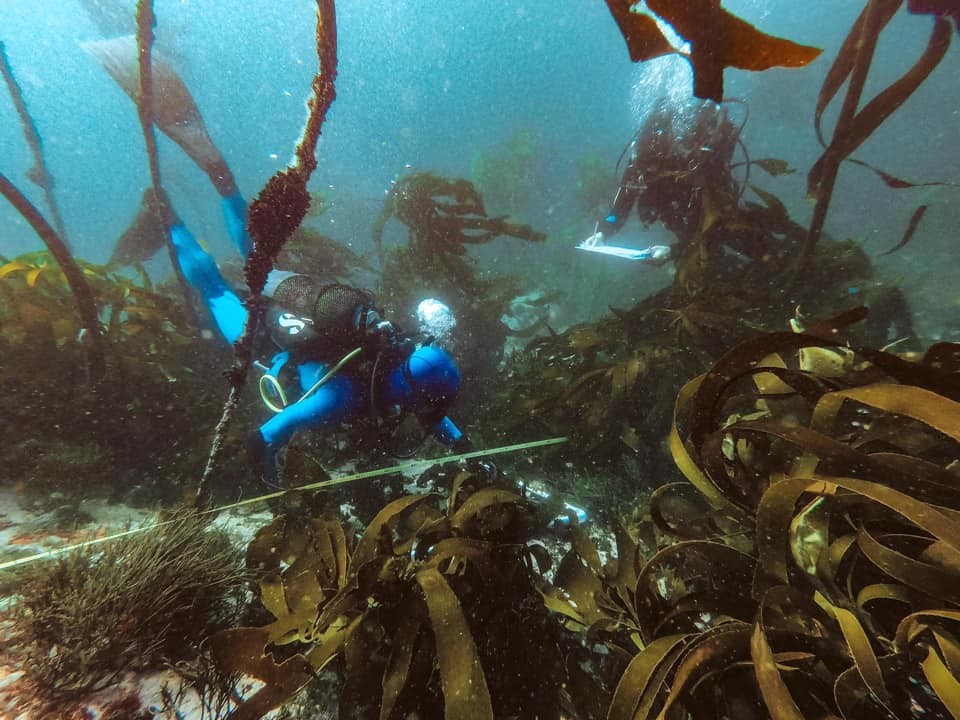

Day 12:
Todays project is Baited Remote Underwater Video systems (BRUVS). This is a great alternative method of sampling fish diversity without using divers instead, using baited canisters to attract fish which may otherwise not be seen so easily. Here, Cape RADD students are out on a BRUV deployment expedition in table bay, assessing fish diversity and abundance at various depths and proximity to the waste outfalls around Cape Town. Students spend a day on a research vessel soaking up the experience of deploying research cameras whilst taking in the incredible views of the Cape Town city coastline, as well as watching out for the many whales, dolphins, seals, sunfish and sea birds we come across during the trips. What a great way to end a two week field course full of exciting field work, informative workshops and life changing experiences.
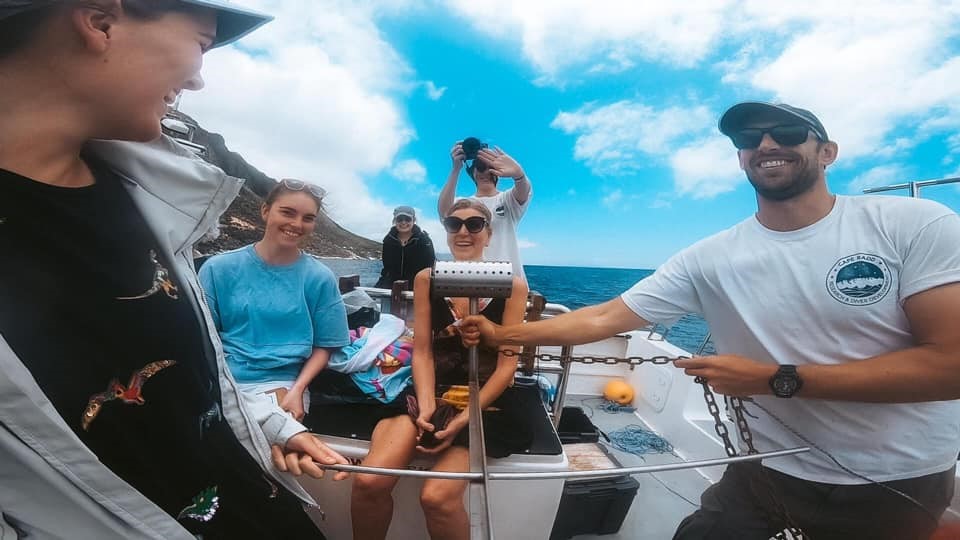

Then, at the end of the day we head back to the accommodation for the Cape RADD certification and farwell braai. Students are rewarded for their hard work and development with a certificate of course completion and reference. After spending two weeks with our students, diving, learning and adventuring we grow close and they become part of the Cape RADD family. The farewell Braai is a lovely way to say our goodbyes and relax and enjoy one more evening of good food and great people under African skies.
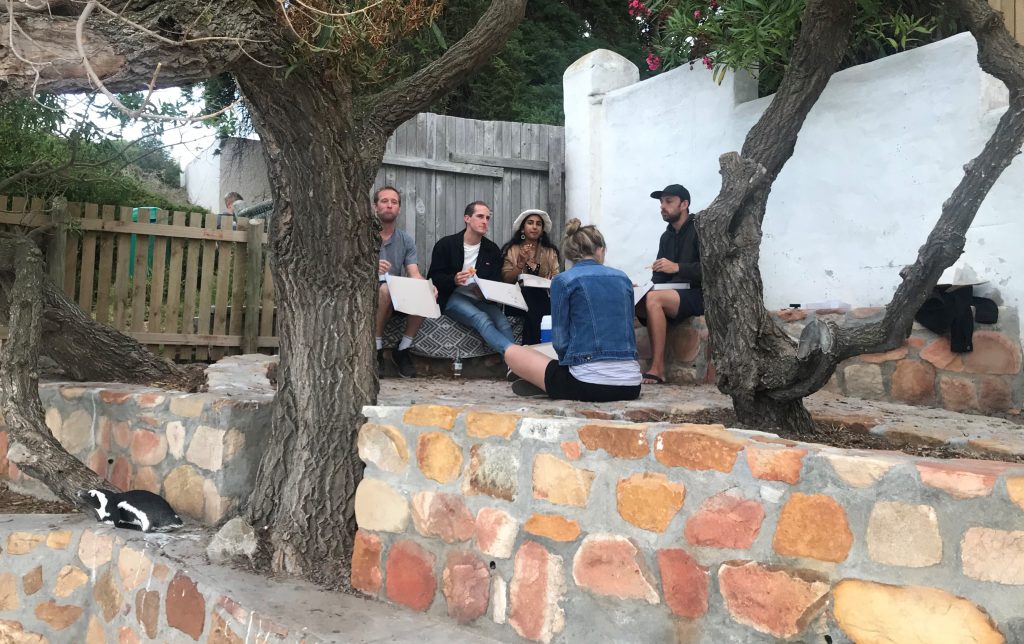
If you like the sounds of this jam packed career development course for early career scientists and conservation enthusiasts get in touch with our friendly and helpful team info@caperadd.com
LETS GET YOU BOOKED ON FOR THE TIME OF YOUR LIFE !
”STOP COUNTING YOUR DIVES AND MAKE YOUR DIVES COUNT”
1 Comment
How Cape RADD is Training the Next Generation of Scientists in the False Bay Hope Spot - zipisland.com · November 14, 2020 at 2:12 am
[…] the core of Cape RADD’s values is passing on our expertise to early career scientists and those with a passion for the ocean. They do this through their Marine Science field courses, […]